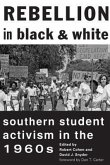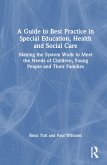How exceptional low-income students navigate and pursue opportunity in prestige-oriented universities at the personal cost of hunger. Beneath the veneer of prestige and promise, a hidden issue pervades the campuses of America's selective universities. In Starving the Dream, Nathan F. Alleman, Cara Cliburn Allen, and Sarah E. Madsen reveal the startling contradiction between the celebrated opportunities of these prestige-oriented institutions and the food insecurity that exceptional low-income students must navigate within environments of plenty. Through meticulous case-study research, the authors leverage student and administrative interviews, observations, and official and "alternative" campus tours to uncover how normatively affluent universities are rife with expectations of extensive campus involvement and material displays of wealth. However, visions of the ideal student experience are only attainable for low-income students at the cost of either involvement or consistent food access. Critiquing the social and symbolic meaning that food takes on in affluent universities where students are socialized into coveting upper-middle-class lifestyle markers such as gourmet coffee and branded campus clothing, the book argues that administrators must better align services and support with the demands of a rigorous academic experience. It also encourages universities to recognize students' innovative solution-making and incorporate their voices and agency in campus strategies. This expansive study challenges readers to reconsider the broader impacts of higher education's structures and priorities and urges a reevaluation of what full participation should look like in these resource- and opportunity-rich environments. Starving the Dream is an appeal to university leaders, campus administrators, and students themselves concerned with educational equity beyond mere access. It provides a blueprint for meaningful change that centers the knowledge of those experiencing and administrating food insecurity, such that the dreams of selective university attendance need not be deferred by student hunger.
Hinweis: Dieser Artikel kann nur an eine deutsche Lieferadresse ausgeliefert werden.
Hinweis: Dieser Artikel kann nur an eine deutsche Lieferadresse ausgeliefert werden.








